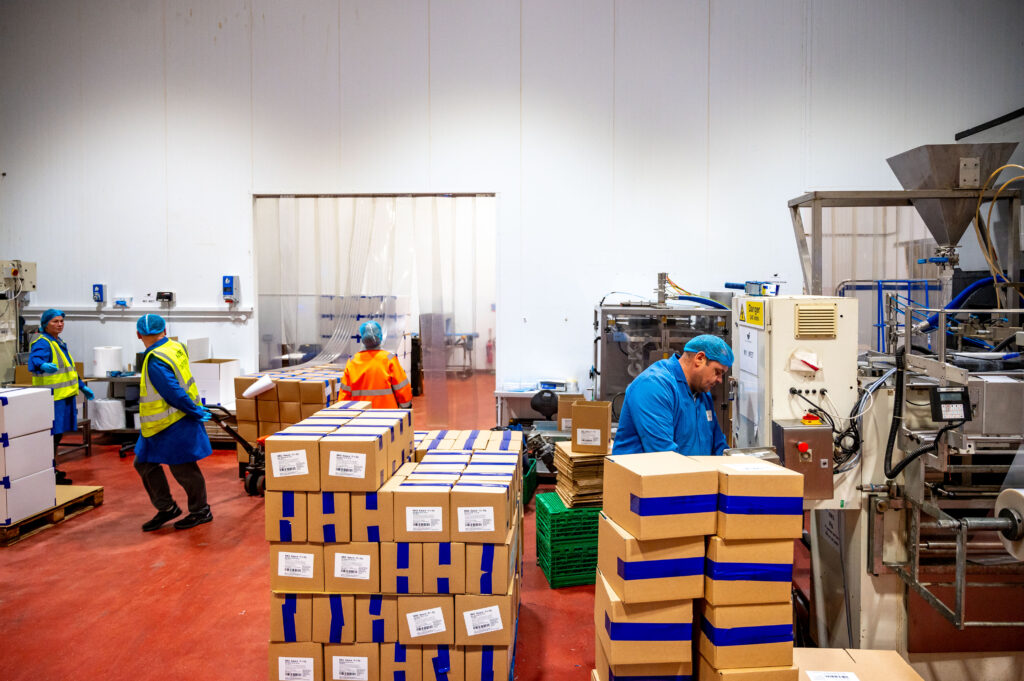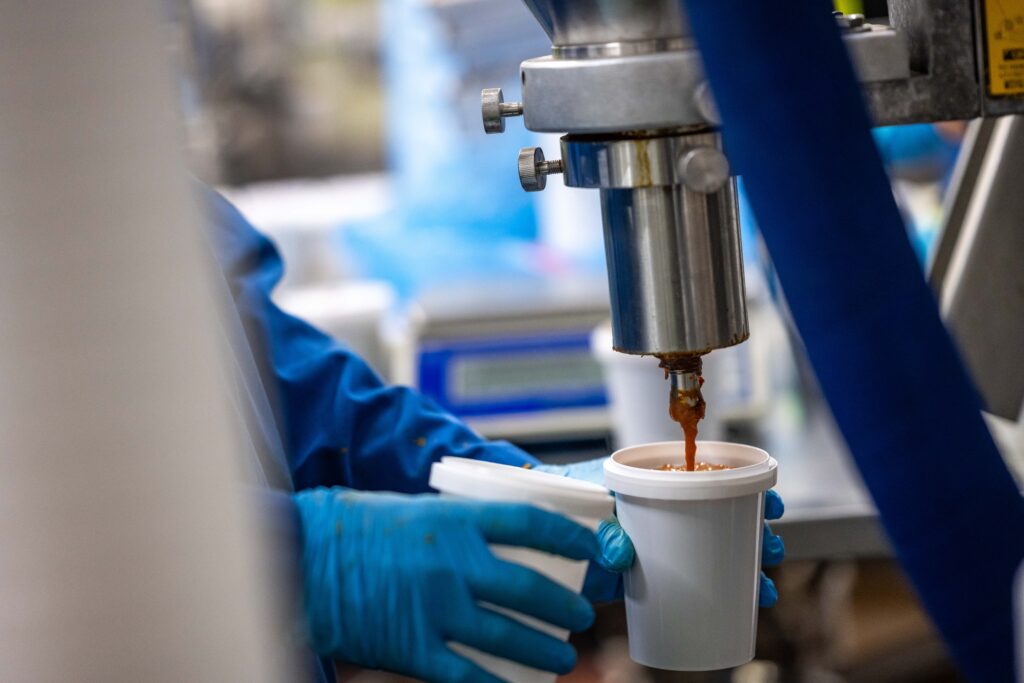The Importance of sustainable packaging in the food industry
In an era where environmental sustainability is no longer a choice but a necessity, the issue of ocean plastic pollution has surfaced as a critical concern.
This alarming issue has led to the formation of initiatives like the Ocean Plastic Reduction Commitment (OPRC), aiming to reduce the plastic footprint significantly. A crucial part of this initiative involves the role played by food manufacturers, whose decisions can make a substantial impact.
The Current Scenario
It’s a startling reality that our oceans are turning into plastic soup. Recent studies suggest that approximately 8 million metric tons of plastic enter our oceans annually, significantly impacting marine life and ecosystems.
Notably, a considerable fraction of this waste comes from food packaging. In fact,

Sustainable Packaging, OPRC and Its Impact
The Ocean Plastic Reduction Commitment (OPRC) works in conjunction with the On-Pack Recycling Label (OPRL) to improve transparency in packaging recycling and encourage sustainable practices.
OPRL is a not-for-profit company limited by guarantee, any surpluses being reinvested in our activities to promote recycling of packaging. The company launched in March 2009, collaborating across the packaging cycle to drive circularity and a transformation in packaging resource efficiency.
In 2023 they became a certified B Corp company.
The B Corp certification addresses the entirety of a business’ operations and covers five key impact areas of Governance, Workers, Community, Environment and Customers.
How labels are determined
Recyclability is assessed by looking at how easy it is for consumers to put the packaging into recycling collections, whether the UK’s recycling infrastructure can handle that material/packaging combination, and whether there are markets for the resulting recyclate. Labelling follows four key areas
- Simplified Binary System: The new system replaces the previous three-label system (‘Widely recycled’, ‘Check local recycling’, ‘Not currently recycled’) with a simpler binary system of ‘Recycle’ or ‘Don’t Recycle’. This is in line with ISO 14021 for self-declared environmental claims such recyclability.
- Criteria for Labeling: The ‘Recycle’ label is used when 75% or more of UK local authorities collect that type of packaging and it is effectively sorted, processed, and sold as recyclate. The ‘Don’t Recycle’ label applies when fewer than 50% of local authorities collect the packaging, or it is not effectively sorted or processed.
- Specialist Labels: Some packaging types, like coffee cups, have specialist labels to support specific collection methods like in-store recycling.
- Adjustments for Specific Materials: The labeling for certain materials has been updated based on their recyclability. For instance, coated paper and card now have stricter quality tolerances for plastic content, and some polymers have shifted categories based on their recyclability
These changes were the result of extensive consultations and consumer testing, utilising a wide range of data, reports, and expert input.
The goal is to drive a shift towards more sustainable packaging ahead of the EPR reforms and to provide consumers with clear, evidence-based information about the recyclability of packaging.
This initiative is part of a broader effort to address the impact of plastic pollution and promote efficient use of natural resources
Camstar Ingredients’ Commitment

Camstar Ingredients stands out as a prime example of how dedication and understanding of market needs can drive significant environmental change.
Known for their exceptional customer service and innovative product development, Camstar is taking positive steps toward environmental sustainability, working on a solution with packaging from traditional plastic packaging to sustainable sachet packets.
These sachet packets are environmentally friendly, aligning with the growing consumer demand for sustainable products and demonstrating Camstar’s commitment to exceeding the high demands of trade partners and consumers.
The Role of Food Manufacturers
Sustainable packaging is often made from materials like plant-based plastics, biodegradable polymers, or recycled materials, offers a viable solution. These alternatives not only decompose faster but also require less energy to produce.
Studies indicate that switching to biodegradable packaging can reduce the carbon footprint of packaging by up to 70%.
However, despite the obvious benefits, the transition to sustainable packaging isn’t without challenges.
The initial cost and reconfiguration of the supply chain pose significant hurdles. However, these challenges are dwarfed by the long-term benefits, including reduced environmental impact and compliance with emerging regulations on plastic use.

Sustainable Packaging. The Path Forward
Food manufacturers can start by auditing their current packaging methods and exploring sustainable alternatives. Collaboration is key – working with governments, NGOs, and innovators in the packaging industry can yield fruitful results.
Moreover, consumer education about the benefits of sustainable packaging can also drive market change.
As we stand at a pivotal moment in our environmental journey, the shift towards sustainable packaging in the food industry is not just a trend, but a vital step towards preserving our oceans and ecosystems.
Food manufacturers, being significant contributors to plastic waste, hold immense power in driving this change. By adopting biodegradable and sustainable packaging options, companies can lead the charge in reducing ocean plastic pollution.
This move reflects their ethos of exceeding expectations through superior customer service and innovative product development while aligning with environmental goals.
The journey towards a plastic-free ocean is long, but with each step taken, we move closer to a cleaner, greener, and more sustainable world.
It is not just an environmental imperative but a moral one, to leave behind a planet that future generations can cherish and thrive in. The commitment of food manufacturers to sustainable packaging practices is crucial in this journey.
The proactive steps by Camstar Ingredients, alongside other industry leaders, set a powerful example for others to follow.
Embracing sustainable solutions in packaging is not only about adhering to regulatory commitments like OPRC but also about leading the way in corporate responsibility and environmental stewardship.
As more companies join this movement, the impact on our oceans and the environment will be profound and lasting.
In conclusion
the role of food manufacturers in combating ocean plastic pollution through sustainable packaging is crucial.
As the industry continues to evolve, it is these actions that will define the legacy of today’s food manufacturers – a legacy of responsibility, innovation, and care for our planet.
If you like this article, would you like to read more about the world of ingredients, rubs, pastes and the global food world?







